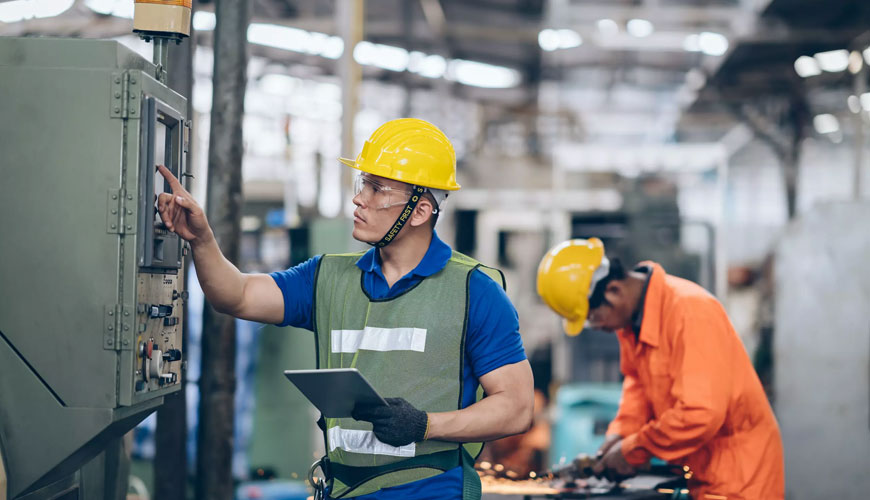

EUROLAB laboratory provides testing and compliance services within the scope of EN ISO 12100 standard. The EN ISO 12100 standard, developed by the International Standards Organization (ISO), specifies the basic terminology, principles and a methodology to ensure safety in machine design. It specifies risk assessment and risk mitigation principles to help designers achieve this goal.

These principles are based on knowledge and experience of the design, use, incidents, accidents and risks associated with machines. Procedures are defined for identifying hazards and estimating and assessing risks and eliminating hazards or reducing adequate risk during relevant phases of the machine lifecycle. Guidance is provided on documenting and validating the risk assessment and risk reduction process.
ISO 12100 is also intended to be used as a basis for the preparation of type B or type C security standards. Not concerned with risk or harm to pets, property or the environment.
The primary purpose of this International Standard is to provide designers with a general framework and guidance for decisions during the development of machines to enable them to design machines that are safe for their intended use. It also provides a strategy for standards developers and assists in the preparation of consistent and appropriate type B and type C standards.
The concept of machine safety considers the ability of a machine to perform its intended functions throughout its lifecycle, where the risk is sufficiently reduced. This International Standard is the basis for a number of standards with the following structure:
This International Standard is a type A standard. If a type C standard deviates from one or more technical provisions addressed by this International Standard or a type B standard, the type C standard takes precedence. It is desirable to refer to this International Standard in training courses and manuals to convey basic terminology and general design methods to designers.
Among the services provided by our organization within the framework of material testing services, there are also EN ISO 12100 standard tests. Do not hesitate to contact our laboratory EUROLAB for your testing and certification requests.
To get an appointment, to get more detailed information or to request an evaluation, you can ask us to fill in our form and reach you.